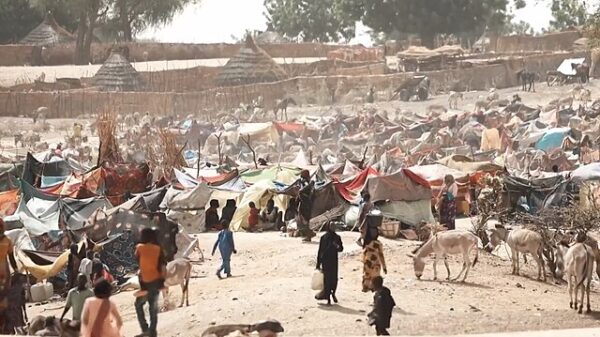Guest contributor Samuel Pennifold discusses factory farming practices in the context of global health, and whether the practice should be stopped to prevent a future pandemic.
Each pandemic of the past century – 1918 Spanish Flu, 2008 Swine Flu, and Covid-19 today – were all caused by Zoonotic viruses – viruses that spill over from animal populations to humans. There are an estimated 1.5 million unknown Zoonotic viruses, any of which could cause the next pandemic. Humans are tempting fate with their current factory farming practices.
Animal factory farming is a multi-million-pound industry, providing the meat that makes up a large part of most western diets. It is a dirty and cruel business that can serve as a breeding ground for disease.
Mother Nature is “the ultimate bioterrorist†in the words of scientific journalist Maryn McKenna. There is a clear link between factory farming and the risk of creating a pathogen. The conditions animals are forced to live under promote the spread of disease through close quarter confinement, and through animals with weakened immune systems being simultaneously pumped full of antibiotics, facilitating the growth of drug-resistant disease strains.
These industry practices promote the bottom line over the health of animals, but also, potentially, global human health. As the human population sees exceptional growth, the UN argues, industrial farming practices are putting us all at risk. We need a farming revolution.
This requires a fundamental shift in human attitudes towards what we eat and how we farm it, especially here in the west. A massive decrease in meat consumption is needed. Alongside its health benefits, this offers untold environmental benefits in reducing greenhouse gases.
Shifting globally to plant-based diets would also make it easier to feed the world, and the answer to this globally is small- scale farming.
A huge proportion of the world’s fruit and vegetable farms are small farms, and most adhere to organic standards. Globally, there is the capacity to feed the world in a safe and responsible manner that does not require the cruel and inhumane practices of factory farming, no matter what ‘Big Cow’ might tell you.
The animal farming industry needs to take on from the fruit and vegetable industry and shift to small, organic farming. This is not a call to say the consumption of meat should be banned but how we farm it must fundamentally change. Unless we practice more responsible farming methods, the next pandemic may take the choice out of our hands.
Now, more than ever, there is a need for strong political leadership. New Zealand’s success in dealing with this pandemic, under Jacinda Ardern’s leadership, show this. As such, while political and public will for change is alive, firm and radical steps must be taken to revolutionise and deindustrialise farming globally, so as to protect the global human community.



















